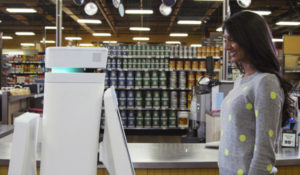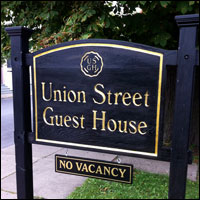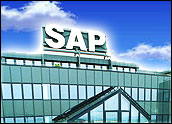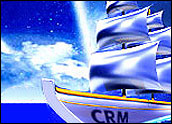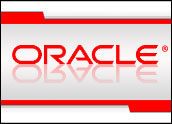
The Oracle v. SAP intellectual property infringement lawsuit moved a step forward Tuesday, as Judge Martin Jenkins of the U.S. District Court in the Northern District of California assigned a trial date and made other procedural decisions in the first case management conference between the two parties.
Following a second case management conference in February of 2008, the trial was set for Feb. 9, 2009, with four weeks set aside for the event. The judge also asked that the parties submit to the use of a special master and set discovery limits for both sides. Specifically, each side will be allowed 20 depositions, 75 interrogatories and 150 documents to use to make their case in the trial.
The court also recommended using mediation as an alternative means of resolving the dispute.
10,000 Documents
Oracle filed suit against SAP and its TomorrowNow subsidiary in March, alleging that SAP had downloaded some 10,000 technical documents from Oracle’s Customer Connection, used by Oracle licensed customers with active support agreements. Downloaded materials included program and software updates, bug fixes, patches, custom solutions and instructional documents for the PeopleSoft and J.D. Edwards family of software products, according to Oracle.
In downloading the materials, Oracle said, SAP was hoping for ways to lure away Oracle customers.
In a case management statement filed at the end of August, SAP said a “prompt resolution” of the case would be “in the best interests of all concerned,” despite its assertion that “Oracle’s statement of ‘facts’ is dramatic but inaccurate.” SAP also said it would favor mediation “with an active or retired Magistrate Judge within the next few months.”
Oracle officials could not be reached for comment.
Standard Practice
“This is a very complex dispute, with thousands of downloads alleged and both sides wanting to interview a large number of witnesses,” Jonathan Handel, an attorney at Troy & Gould, told CRM Buyer. “I think the judge is hoping, as SAP has previously indicated it does as well, that the case will settle, though that may not happen until some point in the discovery process.”
The judge’s mediation recommendation “is standard practice in federal and many state courts these days as a way of trying to divert disputes,” Handel added.
Because of internal tensions and corporate obligations, it’s likely SAP may be reluctant to settle right away, Handel explained. However, “what often happens is that as the case progresses and the parties get educated,” the likelihood becomes greater, he said. “SAP has previously said it would like to settle, and it has admitted at least one of the allegations,” Handel added. “That’s a real signal that they are not happy with where they are.”
A Technical Trial
The judge’s proposed use of a special master makes a great deal of sense, Peter Vogel, a partner with Gardere Wynne Sewell, told CRM Buyer. Special masters function as a neutral third party, appointed by the judge, to manage part of the litigation. They are particularly common when technical assessments are involved, added Vogel, who, with a background in computer science, has served as a special master on numerous occasions himself.
“Judges don’t know anything about the technology for the most part, and nor do jurors,” Vogel said. “The parties generally like to use special masters too because then they don’t have to go to the judge and explain all kinds of technical details.”
The high limits on discovery items and late date of the trial are also not surprising given the technical nature of the allegations, Vogel explained. “For a case like this, what you’ll find is that judges give lawyers a lot more leeway,” he said. “The Northern district of California is one of the centers of litigation for the computer industry, so judges are sensitive to the fact that members of the computer industry are common litigants — they try and give them the benefit of the doubt.”
Too Soon to Predict
Where will things go from here?
“It’s way too soon to know,” Vogel said. “The nature of what’s being claimed may change once they take depositions and exchange documents — that tends to clarify what the case is all about. How it starts and how it ends may be very different.”
Ninety-five percent of cases do settle before trial, though, so there’s an “unbelievable probability it will never make it to trial,” he added.
The Image Factor
Nevertheless, lawyers’ fees notwithstanding, both sides have a motivation not to settle too soon.
“Oracle is very aggressive about protecting its intellectual property, and is not going to make it easy for SAP,” Handel noted.
SAP, meanwhile, like most large companies, “won’t want people to believe that all they have to do is sue them and they’ll hand over lots of money,” Vogel said. “SAP won’t roll over on this right away, no matter what the evidence is.”


